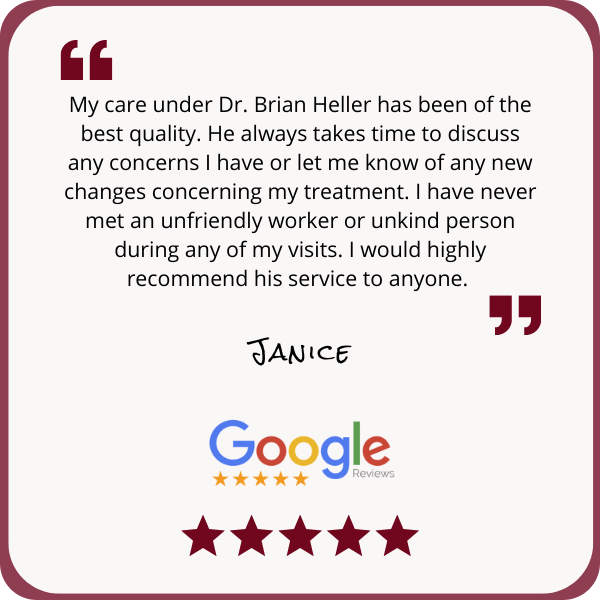Dr. Brian J. Heller
Specialties:
Medical Oncology & Hematology
Education/Experience:
Medical School: Louisiana State University (LSU)
Internship: Internal Medicine, Keesler Medical Center
Residency: Internal Medicine, Keesler Medical Center
Fellowship: Hematology/Oncology, Wilford Hall Medical Center
Board Certification: Medical Oncology
Board Certification: Hematology
Sees Patients:
Providence Hospital Location
“Hi, I’m Brian Heller, I’ve been with Southern Cancer Center since 2007.
Having four kids, a typical Saturday is whatever the kids have planned. I get asked all the time what hobbies I have, and back years ago I remember what it was like to have hobbies but now my hobbies are my kids and my family. Anytime I get to spend with them, whether they like it or not, that’s what I’m doing on Saturday. And they’re very busy like everybody’s kids are.
We have a, we think it’s a beagle, it’s a rescue dog. Her name is Lucy. She’s my dog. She loves me. Everybody is jealous.
We love to travel. As oncologists, cancer doctors, we work very hard. We work long hours, but sometimes you have to remove yourself from that. So that’s what I love to do with my family is travel different places, and really even going to the same place. We love going to Disney World and we’ll go over and over again. But we get away and it’s only us and as much as I can, I try and disconnect from work, although I can’t do it completely all the time.
What most people need to hear is that it’s gonna be okay. The problem is you can’t stop there, because patients wanna hear from their doctor that it’s gonna be okay, but they don’t want you to lie to them. You have to be honest. So I go through and tell them this is what, these are the problems I expect to see. Then I tell them these are the problems that are little bit more serious, but I don’t expect to see.
But I think more importantly than that is I always try and put a hand on their knee or on their shoulder and say, but whatever happens I’m gonna be here for you. Our nurses are gonna be here for you. Our front desk staff are gonna be here with you standing next to you every step of the way.”



